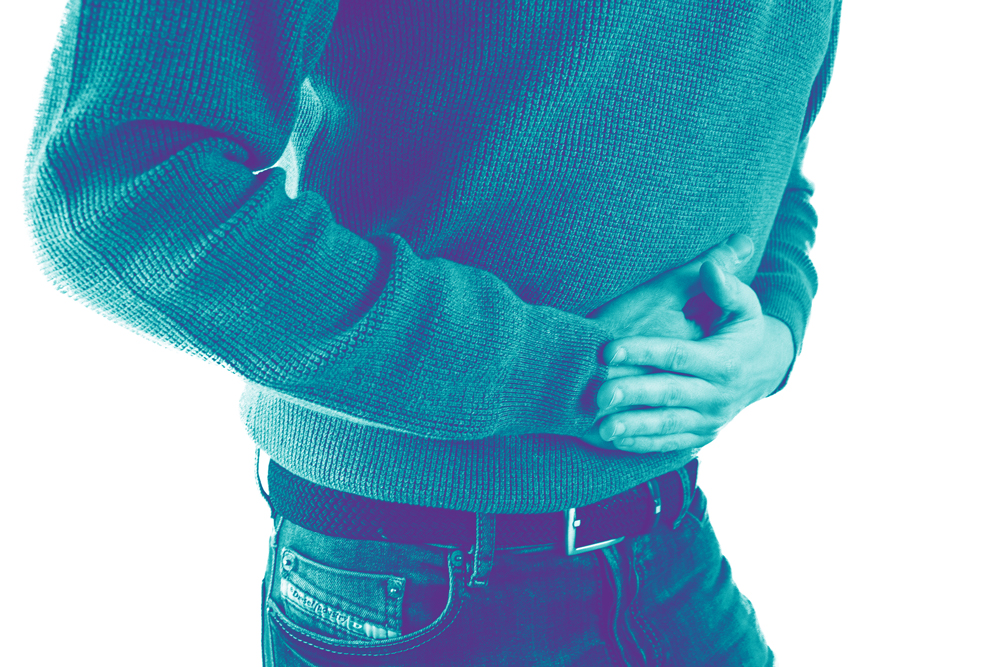Drug-Induced Liver Disease: What Is It and What Are the Signs?
The liver is one of the organs most involved with processing drugs and alcohol. Due to this, it is also one of the most susceptible to damage and disease caused by drug or alcohol abuse. Understanding what drug-induced liver disease is and how to recognize it can help you to make better-informed decisions about your health.
What Is Drug-Induced Liver Disease?
As the name suggests, drug-induced liver disease is a disease of the liver caused primarily by prescription medication, over-the-counter medications, supplements, recreational drugs, alcohol or environmental toxins. Although often referred to collectively, it is actually a category of diseases. The diseases and conditions can include cirrhosis of the liver, hepatitis, fatty liver and others.

The liver is an organ in the upper-right side of the abdomen. It is located behind the rib cage and roughly parallel to its bottom. The liver helps to purify the blood, removing harmful chemicals and secretes them with bile for elimination. Additionally, it produces important substances including bile, proteins and more.
Under normal circumstances, the liver is capable of processing all the outside substances that we ingest. However, if we consume excessive amounts of drugs or are exposed to unusually high levels of environmental toxins, it can be too much for the liver, resulting in disease. You can find more about how this happens below.
What Are the Signs and Symptoms?
Recognizing drug-induced liver disease as early as possible can help with treatment outcomes. It is common for drug and alcohol abuse to cause liver disease long before the symptoms become obvious. Learning about the signs and symptoms and being vigilant are the best ways to identify and address liver disease as early as possible. These are some of the symptoms:
- Weakness
- Abdominal pain
- Fatigue
- Low appetite
- Fever
- Nausea
- Jaundice (yellowing of the skin)
- Itching
- Easy bruising
- Edema (fluid accumulation in the legs)
- Ascites (fluid accumulation in the abdomen)
- Vulnerability to infection
- Gastrointestinal bleeding
- Kidney failure
Typically, the first symptoms are fatigue, low appetite, weakness, nausea and abdominal pain. These are nonspecific, meaning that they are also associated with other conditions. It can be difficult to identify liver disease based on these symptoms alone. However, if you or someone you know is persistently experiencing any of them, especially combined with drug or alcohol abuse, it is time to see a doctor.
Jaundice, itching and easy bruising are clearer signs of liver disease. While itchiness and getting bruises can happen for many other reasons, when combined with other symptoms, they suggest the problem is a diseased liver. Jaundice is caused by an excess of bilirubin in the blood, an issue closely associated with liver disease.
Fluid accumulation, kidney failure and GI bleeding are signs of severe liver disease. These require immediate and often extensive medical intervention. If you experience any of these, do not hesitate to seek medical help. In the case of kidney failure or bleeding, seek emergency treatment.
As with any other medical condition, it is important to see a healthcare provider for an accurate diagnosis. When speaking with a physician, be upfront about drug and/or alcohol abuse. Being honest could make a major difference in your treatment outcomes.
Who Is At Risk?
Anyone can suffer from a drug-induced liver disease. Many forms of liver disease are caused by excessive use or exposure to drugs, alcohol or toxins. However, there are some risk factors that increase the likelihood of suffering from a drug-induced liver disease.
The most significant risk factor is genetic predisposition. While this cannot always be identified before symptoms emerge, a family medical history can help. Additionally, people who are older, those who use multiple drugs (prescription, OTC or recreational) and those who have had a liver disease or injury before are at higher risk.
If you are concerned about your risk of liver disease, speak with a medical professional. He or she will be able to help identify any risk factors and provide guidance on how to mitigate the risk.
How Do Drugs Damage the Liver?
Many chemicals ingested into the body are processed by the liver. It helps to purify the blood so that harmful chemicals are not spread throughout the body. This includes purifying drugs, alcohol and medications from the blood.
Depending on the drug, it may directly injure the liver. Other drugs are transformed by the liver into chemicals that can harm it in sufficient quantities either directly or indirectly. These are the three types of liver toxicity:
- Dose-Dependent: This is a type of toxicity that can cause liver disease in most people. As the name implies, it is dependent on the dose taken.
- Idiosyncratic: Some people have genetic characteristics that make them more susceptible to liver disease. In particular, the relevant genes control the metabolism of chemicals in the liver. This may cause a built-up in either drugs or metabolites (the product of processing chemicals) in the liver. This is the most common form of liver disease associated with drug and/or alcohol abuse.
- Drug Allergy: Although uncommon, drug allergies can cause liver disease. The liver injury is caused by the inflammatory response to the drug.
As mentioned above, prescription medication overdose, environmental toxins and drug and/or alcohol abuse can cause several types of liver disease. These include hepatitis (inflammation), cirrhosis of the liver (scarring), necrosis (cellular death), blood clots, cholestasis (decreased secretion of bile), fatty liver and some other diseases. It may also cause an increase in liver enzymes in the blood, causing damage to the body without major symptoms.
Additionally, some patients experience mixed liver disease. In this case, there are multiple concurrent forms of liver disease. For example, a patient may have hepatitis and fatty liver simultaneously.
What Should You Do If You Suspect You Have Liver Damage?
If you suspect that you are suffering from drug-induced liver disease, seek help promptly. Liver disease can continue to harm your health even when the symptoms are mild. A medical professional can help confirm that you have liver disease and begin treatment.
The most important method of treating drug-induced liver disease is to stop using the drug that is causing it. For patients struggling with drug and/or alcohol abuse, this can be challenging.
Strongly consider a recovery program to help you detox from the drug. This does not have to be an intensive, inpatient program. There are many outpatient and transitional programs available.
In most cases, ceasing the use of the drug will allow the liver to naturally heal itself. However, some types of drug-induced liver disease can be treated with medication. For example, Tylenol overdose may be treated with N-acetylcysteine. This helps to prevent more severe symptoms.
In rare cases, a liver transplant may be necessary. This is typically only reserved for acute liver failure. Additionally, some drugs may cause irreversible cirrhosis of the liver.
Get Help Ending Your Drug and Alcohol Abuse
Drug-induced liver disease is a scary situation to face. Whether you are experiencing the symptoms or just worried about the possibility, the best thing you can do is treat your drug and/or alcohol abuse problem. Addiction and dependence are medical conditions. It is easier to address them with help with qualified professionals.
Clean Recovery Centers could help you deal with your addiction. Learn more about our programs and contact us to see what we can do for you.
Sources:


